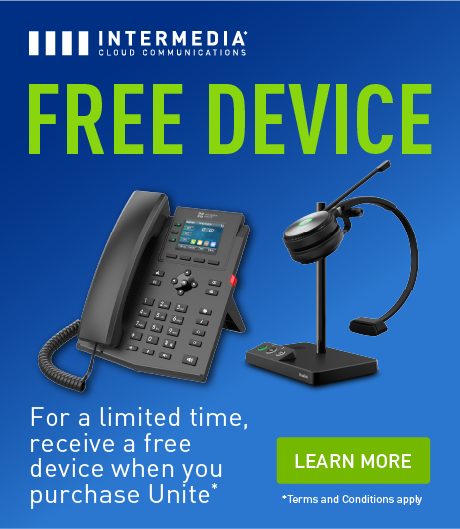Successful companies recognize the need to be customer-centric. Contact center solutions can facilitate this goal.
The right software ensures customers can easily communicate with agents who have the tools to offer practical help. While there are many options for contact center platforms, not all provide a complete solution.
Software that’s lacking can cost you. Most customers will switch to a competitor after one bad customer service experience.
On the other hand, high-value customers consistently pay more for exceptional service. Having the right features and functionality is critical to meeting customer needs.
Find out what makes a contact center solution complete and the benefits it brings.
Key Takeaways:
- A complete solution gives you the tools to optimize your contact center for superior customer service.
- Complete contact center solutions exist in the cloud and provide omnichannel support.
- Your contact center should have features such as IVR, smart routing, and outbound notifications.
- Complete solutions boost productivity with software integrations, agent management, schedules, reports, and analytics.
What Complete Contact Center Solutions Can Do
Complete contact center solutions are robust software platforms. Contact centers as a service enable users to manage multiple channels, agents, and processes to deliver engaging customer experiences.
Additionally, CCaaS offers a convenient, centralized application that’s more convenient than traditional public branch exchanges. A range of excellent features can support all your communications.
7 Features of a Complete Contact Center Solution
When comparing systems, you’ll want the following essential features on your list.
1. Cloud-Based Functionality
Your platform should reside in the cloud. Deploying virtually instead of on-premise is necessary to allow your workers to access the system from wherever they are. The prevalence of hybrid and remote work makes this feature critical in the modern era.
Cloud-hosted contact center solutions are also easier to manage. The reason is that the provider maintains and secures them. In addition, the cloud is less expensive and easier to set up than on-premises installations.
2. Omnichannel Support
Customers want to engage with you in multiple channels. Often, their reason for reaching out guides the channel they select. Cater to their preferences to improve your odds of a positive experience.
There are also generational elements to communication preferences. Digital natives gravitate toward newer channels and prize choice and convenience above all.
A study by Microsoft determined that in the United States, 57% of customers start engagement online while only 35% start with the phone. Overall, U.S. consumers confirmed that they regularly use phone, email, live chat, and self-service methods.
Complete contact center solutions allow you to integrate all channels and create a universal queue. As a result, agents don’t have to manage multiple queues, and customers can engage how they want.
3. IVR and Smart Routing
Interactive voice response is an automated telephony technology that interacts with callers and collects information on their needs. Customers can often engage with the IVR to find what they need (e.g., checking a balance or checking an order’s status). When necessary, they can request agent intervention.
IVR enables smart routing to move callers into the correct queue based on the information they provide. Organizations can have many products and services, and you may have specialized agents for each. Smart routing ensures fewer transfers and faster resolutions.
4. Integrations for More Personalized Interactions
Another key component of effective contact center solutions is integration capabilities. Necessary integrations include many types of productivity software. The most vital of these apps is usually a CRM, which holds customer information.
Agents can access this data as soon as they begin working on the ticket. With the information immediately available, they can deliver a more personalized response. In turn, customers don’t have to repeat past contact or issues with every new person they interact with.
5. Agent Management and Scheduling
Managers need additional features in their contact center solutions that make operations easier. A robust platform will help them manage agents and review their performance.
Valuable elements of this functionality include:
- Scheduling tools to manage calendars and monitor adherence through reporting
- Quality assurance capabilities to monitor calls with recording options and view chat logs
- Reporting and performance analysis that includes real-time dashboards along with detailed queue and agent statistics
With these assets, your managers have a 360-degree view of customer interactions. This visibility facilitates a more efficient department that uses data to drive decision-making.
6. Analytics and Reports
In addition to the features above, there are more analytics and reporting capabilities you’ll appreciate. Reports are customizable to your needs relating to agent and queue performance.
Analytics on first-call resolution, talk time intervals, and abandonment numbers offer deep insights for contact center leadership. For example, they can understand peak times and staff accordingly.
Another top feature is drilling down into agent performance. A supervisor can then identify areas where that employee may need more coaching or training. Artificial intelligence provides a user-friendly review of specific conversation analytics for trainers and coaches.
Complete contact center solutions also allow you to spot recurring trends in calls. For example, product managers may glean information about how to improve an item. The marketing team can use the data for content ideas, and sales can understand emerging customer needs.
7. Outbound Notifications
Contact center software doesn’t just serve inbound channels. You can also use it to send dynamic notifications to customers. You can send those via voice, text, or email. Ways to employ this functionality include:
- Appointment and scheduling reminders
- Promotions, upselling, and marketing messages
- Reservation confirmations
- Payment due notifications
- Outages and updates from utilities or telecom
By deploying outbound notifications, your business can benefit from more on-time arrivals, boosted sales, and happier customers. Proactive communication can be pivotal in building long-term customer relationships.
Intermedia’s Full-Package Contact Center Solutions
Upgrading your contact center platform provides many advantages. When it’s complete, you’ll be able to scale and manage your team better than ever.
You’ll find all these vital features and more with Intermedia’s Contact Center solutions. Explore the capabilities today.
May 5, 2023
Explore other posts on these topics: Contact Center Unified Communications





